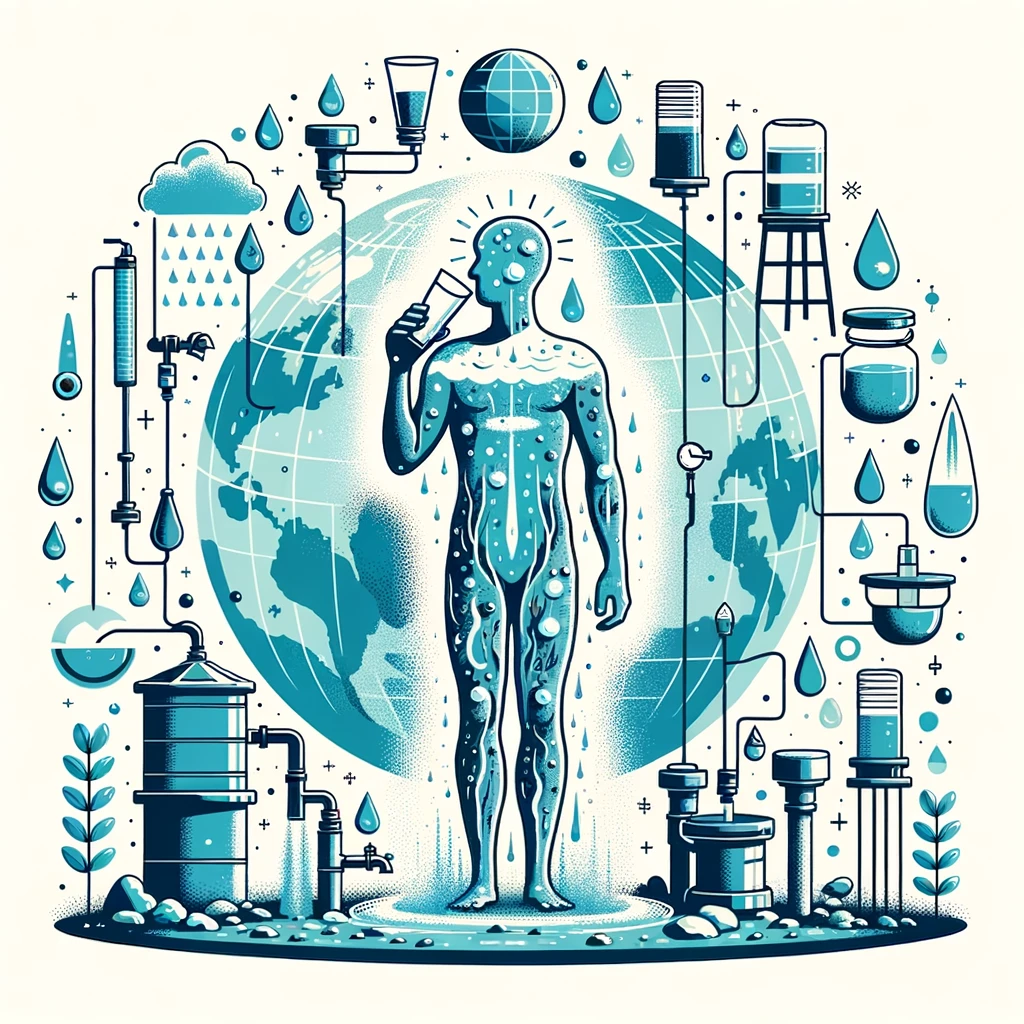
Water is often referred to as the elixir of life, and for good reason. It is a fundamental element that sustains all living organisms on Earth. As humans, we rely on water for numerous bodily functions, making it essential for our health and well-being. In this article, we will explore the importance of drinking water, how much we should consume, and why the quality of the water we drink is crucial. We will also draw a fascinating analogy to the world of plants, particularly the role of water in ensuring the survival of microgreens.
Hydration and Body Function
Water is essential for the proper functioning of our bodies. It serves as a vital component of bodily fluids, including blood, which carries oxygen and nutrients to our cells. Proper hydration helps regulate body temperature, supports digestion, and aids in the elimination of waste products through urine.
Cognitive Function
Staying adequately hydrated is also crucial for optimal cognitive function. Dehydration can lead to reduced alertness, difficulty concentrating, and impaired short-term memory. By drinking enough water, we can maintain mental clarity and ensure our brains function at their best.
Detoxification
Water plays a crucial role in the body's natural detoxification processes. It helps flush out toxins, waste products, and excess salts from our system. Proper hydration supports healthy kidneys and liver function, which are essential for filtering and eliminating harmful substances.
How Much Water Should You Drink?
The recommended daily water intake can vary depending on factors such as age, sex, activity level, and climate. A general guideline is the "8x8 rule," which suggests drinking eight 8-ounce glasses of water a day, totaling about 2 liters. However, some individuals may require more or less water. The Institute of Medicine recommends an average daily intake of about 3.7 liters (or about 15 cups) for men and 2.7 liters (or about 11 cups) for women, including water from all beverages and foods.
Quality Matters
While the quantity of water we consume is important, the quality of the water we drink is equally crucial. Poor water quality can introduce contaminants and impurities into our bodies, potentially harming our health. This is where water filtration systems come into play.
Local Microfiltration and Reverse Osmosis
One way to ensure the quality of the water you consume is to use local microfiltration and reverse osmosis systems. These advanced filtration methods effectively remove a wide range of impurities, including microorganisms, chemicals, and heavy metals, providing clean, safe drinking water. This technology operates on a principle akin to how plants filter and transport water, ensuring their health and vitality.
The Plant Analogy
Just as water is essential for humans, it is crucial for the growth of plants. Microgreens, in particular, depend on a delicate balance of water and nutrients to thrive. If microgreens receive too little water, they can wither and die. Conversely, if they are overwatered or exposed to poor-quality water, they may succumb to diseases, fungi, or mineral imbalances. This analogy illustrates the significance of providing clean and adequate water to sustain life, whether it be for plants or humans.
The importance of drinking water cannot be overstated. Proper hydration is essential for the functioning of our bodies, and the quantity of water we consume should be balanced with its quality. Water purification methods like local microfiltration and reverse osmosis help ensure that we receive clean and safe water, which is vital for our overall health and well-being. Just as plants rely on water for their survival, we must recognize the significance of this precious resource and take steps to protect it. In doing so, we safeguard our health and the health of our environment.
